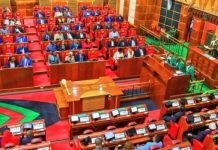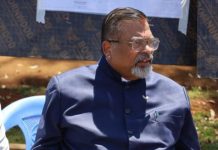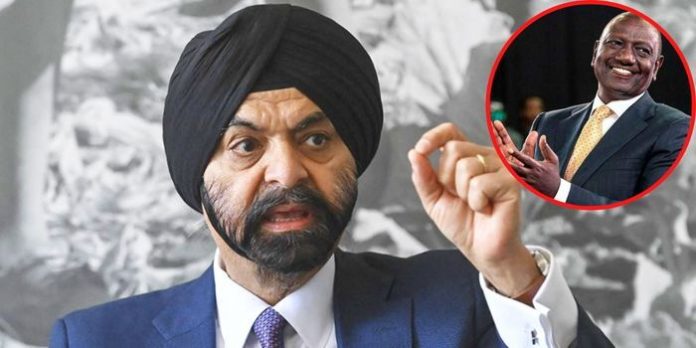The World Bank on Tuesday, December 10, gave four key recommendations to the Kenyan government to improve the state of Public-Private Partnerships (PPPs) in Kenya.
In its latest release of the Kenya Economic Update, the World Bank has given its input on opportunities for effective PPPs in regard to infrastructural development.
The World Bank noted that currently, Kenya has a progressive PPP framework centered around policy, regulation and institutions whose implementation can be strengthened further amidst its promising portfolio of PPP projects.
Even so, the global body has recommended putting in place good governance, oversight, planning, and accountability mechanism with assigned key performance indicators (KPIs), including strengthening of practices around unsolicited project proposals, to foster predictability and confidence in PPP project development. This would provide a basis for monitoring and evaluation whilst ensuring a future reference point for highlighting the impact of PPPs.
Further, it has put forward choosing the right projects that are economically, technically, financially, environmentally, and socially viable and are aligned with sectoral priorities based on a robust planning process. This would ensure maximum output and streamline operations in all areas within the PPP ecosystem.
Thirdly, by adopting fair, transparent and competitive bidding process as a preferred method for selecting capable private partners for PPP transactions for better competitive price discovery and value for money the PPP sector can witness growth. This would weed out malpractices in the bidding process and minimize graft scandals.
Fourthly, the World Bank has recommended using just the right amount of public sector funding to unlock private sector capital into public infrastructure while minimizing the possible adverse impacts on public finance. This would provide a great balance in PPPs enhancing cohesion between the public and private sector.
The World Bank’s recommendations come amidst the recent public uproar over the transparency of PPPs in Kenya, in particular the JKIA-KETRACO Adani deals. The deals garnered public backlash due to the vague and ambiguous nature they were developed with Kenyans only being privy to the matter after a whistleblower came out with the news.
Many observers and Kenyans pointed to ulterior motives within the deal with many alleging graft was at play. This was due to Adani’s infamous reputation of being involved in graft cases whilst leaving the countries they had struck agreements with in dire situations such as Bangladesh.
Their concerns were vindicated when it emerged that Gautam Adani, chairman and founder of Adani Group, together with other executives were indicted by the New York Department of Justice (DOJ) over alleged bribery and graft cases. Their indictment prompted President Ruto to issue a new directive, cancelling the two Adani deals worth Ksh334 billion in his State of the Nation address.
Kenya falls under the World Bank-financed Infrastructure Finance and Public-Private Partnerships (IFPPP) Project, with the government having mobilized about USD one billion(Ksh 129.31B at current exchange rates) private capital, and currently has 29 projects in the PPP pipeline estimated at USD 11 billion(Ksh 1.42T) at various stages of development.
Infrastructure remains a key platform for job creation, public service delivery, and economic growth. Through the Kenya Vision 2030, the country aspires to be firmly interconnected through a network of roads, railways, ports, airports, water and sanitation facilities, and telecommunications.
Source: kENYANS.CO.KE









[…] apps like Tala and Branch now rely on your CRB status before giving you a loan. If you’re listed negatively, you’re likely to be rejected. That’s where CRB-free loan apps come in […]